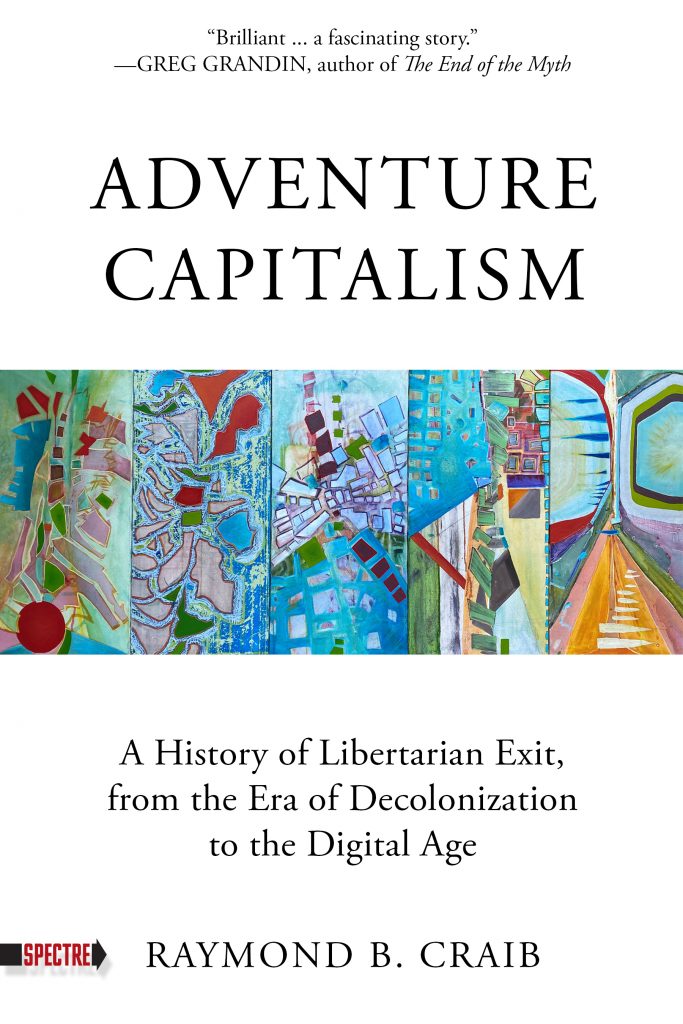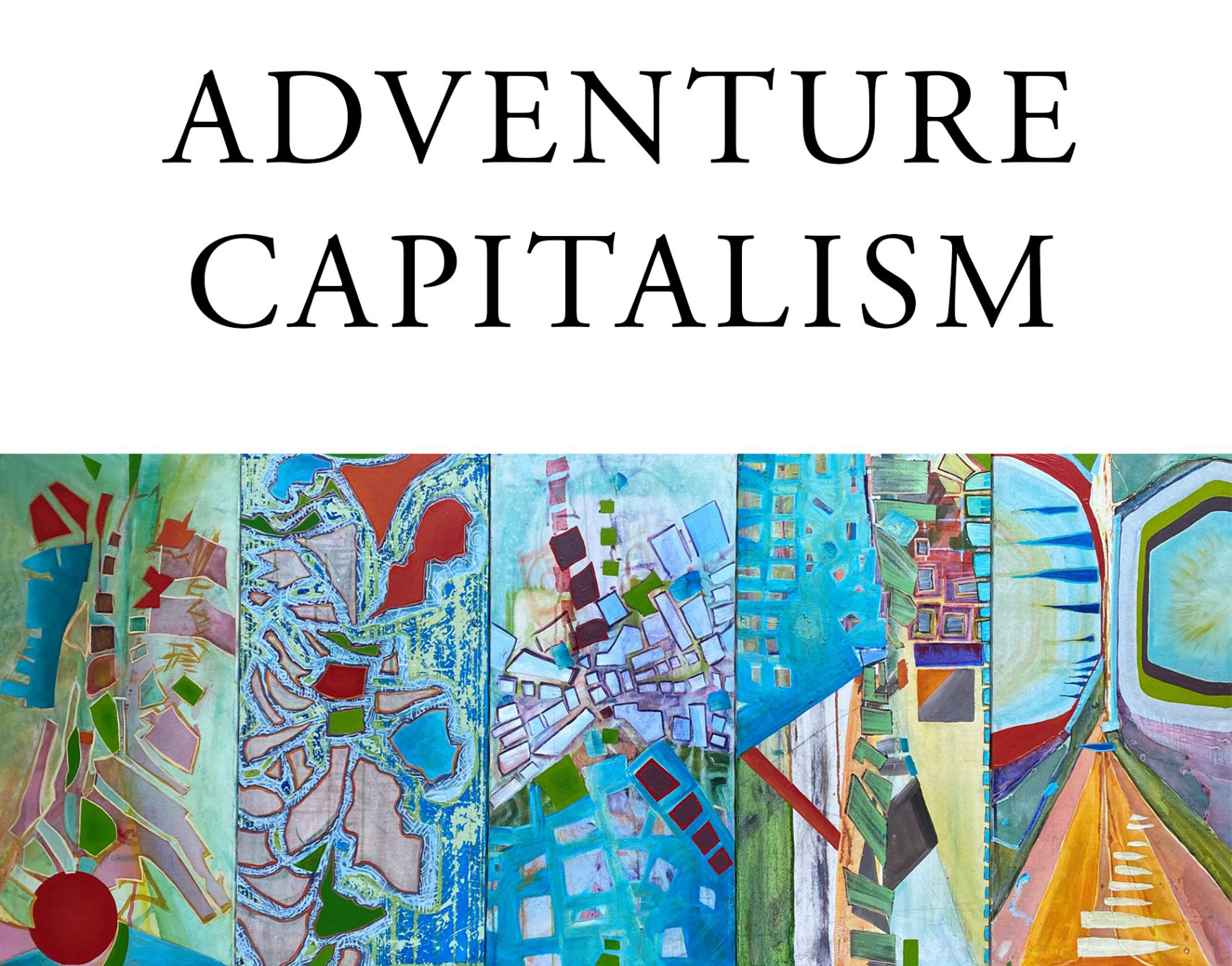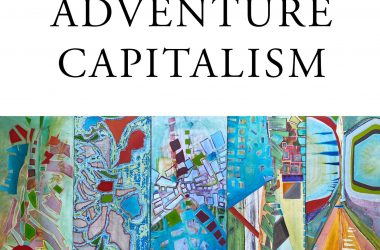In the mid-Nineties, I spent about eighteen months working as an editor for the British edition of a new magazine called Wired, which had been founded in San Francisco as a sort of house journal of the exploding Bay Area tech world. London at the time was fairly sure of itself culturally; this was a moment when you could affix “Brit” to things—BritArt and BritPop—and they would sound cool. But we didn’t have much in the way of BritCyberculture, which was what Wired was selling: a freewheeling future in which old problems like state repression and economic scarcity would be swept away by the internet.
Early in my tenure, I was sent to San Francisco for what was called, only half-jokingly, “an injection of Wired DNA.” I lounged in hot tubs, played frame drums on the beach, ingested strong psychedelics, went to parties, and met the kind of people Wired editors liked to refer to as “digerati”—people such as Stewart Brand, who had started the Whole Earth Catalog. Working at Wired felt like being part of a cult. There were the people who got it, who understood that we were about to be raptured by the internet, and there were Luddites, who would be left behind in the ruins of the old world. In the San Francisco office, staffers went barefoot, the accounting department had a butoh troupe, and—what impressed me most—in the kitchen was a fridge full of Odwalla juices.
I bought into some of this. I had indisputably stumbled into the middle of a momentous technological and social shift, and it was fun to feel part of this late flowering of West Coast counterculture. As a writer in my mid-twenties, I was interviewing philosophers and government officials, touring Scandinavian chip fabrication plants, and trying out VR gear—yet I was also aware that my idea of a “digital revolution” wasn’t the one espoused by the magazine’s senior staff. While at Wired, I was also part of an editorial team producing an underground publication called Mute. Our slogan was “proud to be flesh,” and our contributors included artists, designers, programmers, theorists, and activists. It was grubbier, more European, and much more skeptical about the social impact of the internet. Information may have wanted to be free, we thought, but so did people. Our feral ethos was best demonstrated by the production process. A deal had been struck with the printer that produced the Financial Times. They would use our publication to do test runs on rolls of the FT’s distinctive pink paper, for which we got a cheap rate. The resulting resemblance made for good times on the Tube, as the banker reading over your shoulder, expecting something about interest rates, found himself confronted with headlines like angel, virus: cyberspace breakdown(s) or (my personal favorite) alt.zombie.golf.the.earth.
Occasionally my dissenting perspective showed through at Wired. I had been struck by the claim, made in another magazine, that only half of the people in the world had ever made a phone call. When Wired’s co-founder, Louis Rossetto, came to London for an editorial meeting, I spoke up to ask why, given the massive disparities in access to communication technology, we weren’t more focused on the digital have-nots. At the time I didn’t know much about my ultimate boss, except that he had a reputation as a visionary who didn’t suffer fools gladly. I later found out that he had been a campus radical in the Sixties, though not the usual type. As a senior at Columbia, Rossetto had co-authored a 1971 New York Times piece titled the new right credo—libertarianism, a passionate polemic in favor of laissez-faire economics, the expansion of private property, and a minimal (or even non-existent) state, accompanied by pictures of a pantheon of heroes, including Ayn Rand and the science fiction writer Robert Heinlein. By the time he started Wired, two decades later, his libertarianism had curdled into an opposition to politics as such.
Rossetto patiently corrected me. There were no have-nots, he said. Only have-laters. In the world of Wired, distribution was a technical issue, a speed bump on a road being built by smart engineers. While superficially true (twenty-five years on, internet-enabled cell phones are ubiquitous in the developing world), his answer blithely reduced billions of people to passive consumers of a future he and his friends were bringing into being.
It was a testament to Rossetto’s commitment to free expression that I didn’t get fired for what I did next. At Mute we’d published a withering critique of the Wired worldview by two leftists, Richard Barbrook and Andy Cameron. “The Californian Ideology simultaneously reflects the disciplines of market economics and the freedoms of hippie artisanship,” they wrote. “This bizarre hybrid is only made possible through a nearly universal belief in technological determinism.” I emailed a copy of the essay to Rossetto and asked whether he’d care to respond. He did, in an email, which we happily printed in Mute. He described “The Californian Ideology” as
a seeming understanding of the Digital Revolution’s crucial left-right fusion of free minds and free markets, followed by a totally out-to-lunch excursion into discussions of the role of the government, racism, and the ecology in California . . . all of it betraying an atavistic attachment to statism, and an utterly dismal failure to comprehend the possibilities of a future radically different than the one we currently inhabit.
This future, Rossetto insisted, would be “democratic, meritocratic, decentralized, libertarian.”
The political economist Albert O. Hirschman famously characterized the choice that is faced by people within declining institutions as being between “voice” and “exit.” Either you speak up to change things, or you leave and look for something better. In its West Coast iteration, libertarianism had become bound up with the idea of exit. Wired staffers liked to joke that, as Californians, they were the descendants of people who, when they didn’t like something, preferred to pack up and leave. The idea of Westward expansion had been translated, during the Cold War, into a desire for the “high frontier” of space. The Californian ideologists of the Nineties saw themselves as part of a third wave, in which the frontier had become as much temporal as physical. Rossetto once explained to me (possibly in the same meeting) that, as a resident of technologically lagging London, I was “literally” living two years in his Bay Area past.
Since World War II, there have been numerous libertarian efforts to found territories outside the global order—several of them initiated by a Lithuanian Holocaust survivor who became a millionaire by developing land in Nevada and selling gold and silver coins by mail order. Moses Olitzky—later Michael Oliver—so feared the rise of American totalitarianism that he devoted himself, from the Sixties onward, to the creation of a libertarian micronation beyond state control. After failing to establish his New Jerusalem on reefs which turned out to belong to Tonga, he tried the Bahamas and later Vanuatu. None of his projects came to fruition.
Oliver’s schemes are detailed in Adventure Capitalism, Raymond B. Craib’s fascinating history of what he terms libertarian exit. Oliver, in Craib’s account, exploited opportunities created by decolonization, offering incentives to governments looking to bootstrap their post-independence economies. He aspired to be a postwar version of Kiplingesque nineteenth-century adventurers—men who would be kings—like the Englishman James Brooke, who became the rajah of Sarawak in the 1840s. Oliver’s failures demonstrated that, by the late twentieth century, there was little chance of finding an alternative to the global system. Galt’s Gulch did not exist.






